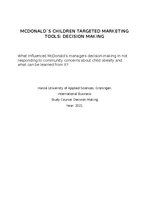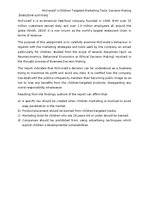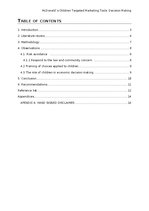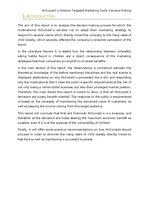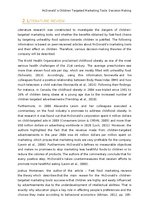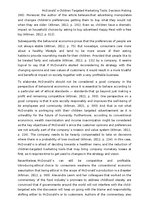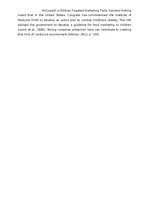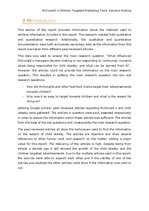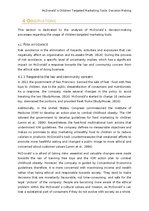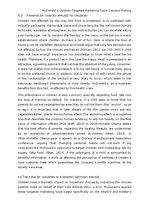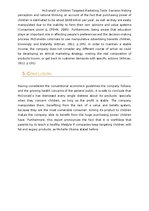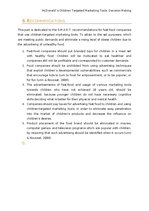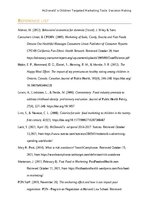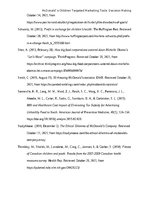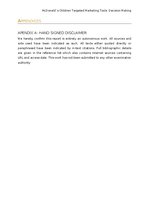-
Mcdonald`s children targeted marketing tools: decision making
| Nr. | Chapter | Page. |
| Executive summary | 1 | |
| 1. | Introduction | 3 |
| 2. | Literature review | 4 |
| 3. | Methodology | 6 |
| 4. | Observations | 7 |
| 4.1 | Risk avoidance | 7 |
| 4.1.1 | Respond to the law and community concern | 7 |
| 4.2 | Framing of choices applied to children | 7 |
| 4.3 | The role of children in economic decision making | 8 |
| 5. | Conclusion | 9 |
| 6. | Recommendations | 10 |
| Reference list | 11 | |
| Appendices | 13 | |
| APENDIX A: HAND SIGNED DISCLAIMER | 13 |
The aim of this report is to analyze the decision-making process for which the multinational McDonald`s decided not to adapt their marketing strategy to respond to several claims which directly linked the company to the rising rates of child obesity, which severely affected the company’s consumer perception of the brand.
In the Literature Review it is stated how the relationship between unhealthy eating habits found in children are a direct consequence of the marketing strategies fast-food companies accomplish to increase benefits.
In the main section of this report, the Observations, a connection between the theoretical knowledge of the before mentioned disciplines and the real events is displayed, elaborating on why McDonald`s proceeded like it did; and responding why the multinational didn’t meet the public’s specific requirements at the risk of not only losing a million-dollar business, but also their privileged market position. …

